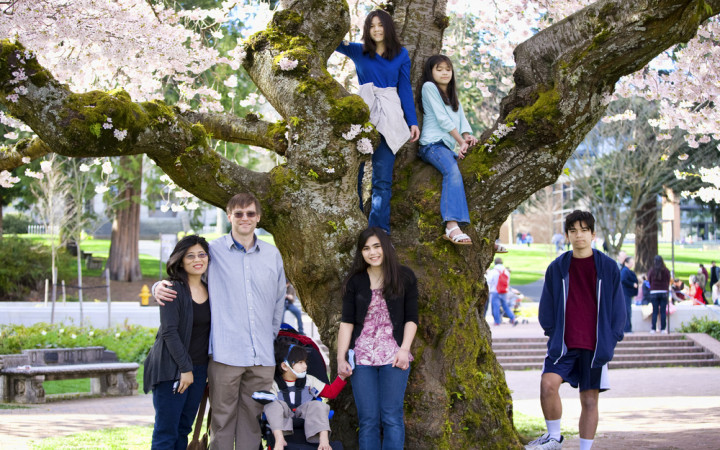Can you remember the day you were born? Of course not! None of us can. When we're born, we're too young to understand what's going on around us. Most of us can't remember much more than vague images of our first several years on Earth.
In your earliest years, you rely almost completely upon your family. All of us need people to take care of us when we're young. As we grow, we learn that those people who care for us are our family.
Sometimes, those family members we know and love aren't actually the people who gave birth to us. Many children eventually learn that they were adopted. Do you know anyone who was adopted?
Adoption is the process through which a person — the adoptive parent — assumes permanent legal responsibility for a child. Adoption requires the biological parents (the ones responsible for the birth of the child) to give up their legal right to custody of their child.
There are many reasons why biological parents might give up custody of their children. Sometimes they are unable to provide for their child, so adoption is a better option for the child. Likewise, adoptive parents may not be able to have a child of their own. Adoption allows them to start a family and share their love with a child who needs it.
Once an adoption is finalized, the adoptive parent is the legal parent of the child. There's no legal difference between an adopted child and one who is born into a biological family.
Although adopted children don't share the same genes as their adoptive parents (they share genes with their biological parents), they share all the same love and special moments like any other family. Children may not realize they're adopted until their adoptive parents decide to tell them. This is a personal decision that varies by family and the ability of the children to understand.
Specific adoption laws can vary from state to state. Some states allow adoptive children to learn the identity of their biological parents easily. Other states protect this information and it can be very difficult to learn this information.
Some adopted children never learn the identity of their biological parents. Others learn their identities and may even establish a relationship with their biological parents at some point in time. Each child is different, but it's not unusual for adopted children one day to become curious about their biological roots. Thanks to the Internet and modern technology, it's much easier for adopted children to search for information about their biological relatives.
Of course, it's not just babies that are adopted. Kids of all ages can be adopted at any time. They can be adopted by a new family or a relative or even a step- or foster-parent. Many adoptive families choose to adopt children from other countries, too.




